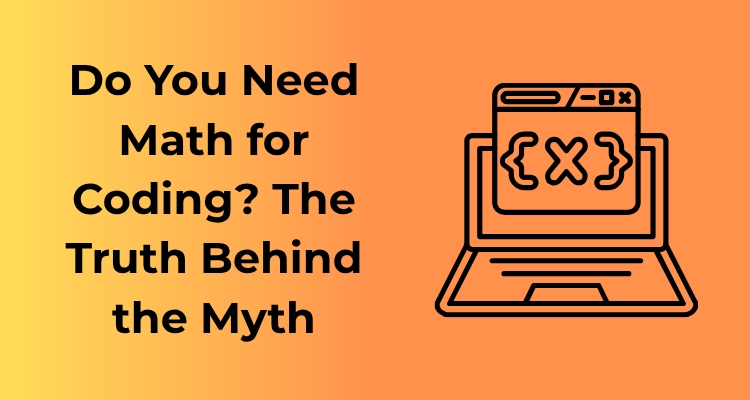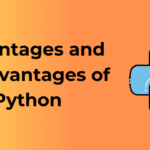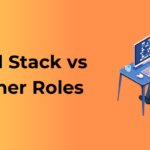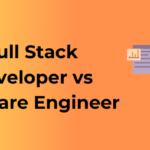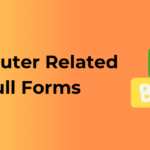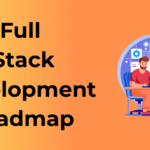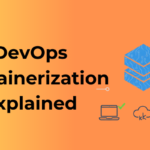When people think about coding, they often imagine complex formulas, equations, and endless calculations. It’s one of the biggest misconceptions that keeps beginners from even trying to code. But here’s the truth — while math and coding share some similarities, you don’t need to be a mathematician to become a great programmer. In fact, many successful developers come from non-math backgrounds. Coding is more about problem-solving, logical thinking, and creativity than crunching numbers. Let’s break down how math actually fits into programming — and when it doesn’t.
Breaking Down the Link Between Math and Coding: Myths vs Reality
Let’s get one thing straight—there’s a common myth out there that if you’re not a math whiz, you can’t be a programmer. This idea can leave aspiring coders feeling discouraged before they even write their first line of code. But let’s take a closer look and separate fact from fiction.
Myth: Coding Equals Complex Math
Many believe coding is all about solving massive equations or diving deep into abstract calculus. The truth? For most coding tasks, especially in fields like web development or app creation, you’re not solving for X every other line of code. Instead, coding is more about logic, organization, and understanding patterns. Think of it as writing instructions for your computer, not a math test!
Reality: Coding Requires Logical Thinking More Than Pure Math
To succeed at coding, you need critical thinking and problem-solving skills. Sure, math might help you train your brain to think analytically, but the actual skills you’ll use are more about breaking problems into smaller, manageable steps. For instance:
- Building a function to automate a task? That’s about how well you can think through a solution, not the math behind it.
- Creating a website or making an app UI? That’s about creativity, positioning, and maybe a sprinkle of simple arithmetic for layouts—not geometry.
Breaking Down Some Common Misunderstandings:

Let’s clear up three misconceptions about math and coding:
- Myth: You need a strong math background to learn programming.
Reality: Many developers start with no more than basic high school math skills. Success in coding comes from determination and practice. - Myth: Advanced math is essential for every programming field.
Reality: While areas like game development or data science do need math-heavy skills, fields like front-end development or scripting can thrive without them. - Myth: Math-heavy degrees are prerequisites for becoming a great coder.
Reality: Coding bootcamps and online courses, which don’t emphasize math, are producing skilled developers every day.
So, What’s at the Heart of This Myth?
Maybe this misconception comes from the overlap between computer science and programming. Computer science, as an academic or research field, can involve math-heavy studies like algorithms or cryptography. But programming—using languages like Python, JavaScript, or HTML—is a much more hands-on, practical skill, often with only surface-level math needs (if any).
Let’s Look Forward With Confidence
As you start or journey forward in your programming career, don’t let the fear of math hold you back. The reality is, coding is open to anyone willing to practice, problem-solve, and keep learning. Software development is more about creativity, collaboration, and logic than daunting equations.
The Role of Logic Over Numbers: How Programming Relates to Problem Solving
When you think about coding, do you picture intricate math equations and calculators on every desk? If so, breathe a sigh of relief! While math can play a part in programming, what truly lies at the heart of coding is logic, not just numbers. In many ways, programming isn’t about solving mathematical equations—it’s about solving problems, one logical step at a time.
Why Logic Is the Backbone of Programming
Think of programming as giving a computer a series of instructions to follow. Computers don’t make assumptions—they rely on clearly defined steps and rules. That’s where logic comes in. Every time you code, you craft a sequence of commands that tell the computer what to do and when to do it.
- Creating a website? You’ll design how users navigate and interact with different elements logically.
- Building an app? You’ll anticipate user actions and translate them into coded responses.
In essence, understanding cause-and-effect relationships and thinking critically about solutions is what allows you to write effective code. These are logic-driven practices, not math-heavy exercises.
If Not Numbers, Then What? The Power of “If” Statements
Here’s an example of logic in action: “if” statements—a foundational concept in programming. It works like this:
“If this condition is true, then do that.”
Imagine you’re building a weather app. An “if” statement could look something like:
if (temperature > 30) {
display("Wear sunglasses!");
} else {
display("Take a jacket!");
}
This isn’t advanced calculus; it’s straightforward reasoning. You’re creating scenarios and telling the computer how to respond in each one.
Logical Problem Solving: A Skill That Grows Over Time
Here’s the good news: coding teaches you logic as you go! You don’t have to enter the world of programming as a logic wizard. The more you code, the better you’ll become at breaking down problems, analyzing possibilities, and finding efficient solutions.
Remember those tricky puzzles or riddles you’ve tackled? Approaching programming is like that—it’s about figuring out the best way to solve a problem, step by step.
Practical Advice for Beginners
- Start Small: Focus on simple challenges like printing “Hello, world!” or building a basic to-do list in your code.
- Think Like a Detective: Break complex tasks into smaller pieces you can handle one by one.
- Ask “Why?”: When you’re stuck, question why something doesn’t work. Debugging sharpens your logical thinking skills!
When Math Becomes Essential in Coding: Fields Where It Plays a Bigger Role
Let’s face it, not everyone gets excited about math. But when it comes to coding, there are specific fields where math isn’t just helpful – it’s downright essential. Don’t worry; this doesn’t mean you now need to be Einstein to code. It’s simply about understanding when math becomes your secret weapon and how it’s woven into certain programming domains.
When Does Math Really Matter?
For many coding tasks, you’ll get by with basic math—think addition, subtraction, and the occasional percentage calculation. But in some fields, math takes center stage. These are areas where mathematical concepts are baked into the very fabric of the work. Curious what they are? Here’s a breakdown:
- Game Development: Dream of designing your own video games? Math is your BFF in this field. Whether it’s creating 3D graphics, simulating physics (like gravity and motion), or even designing AI opponents, math is the backbone. You’ll need to dive into trigonometry, linear algebra, and even calculus to make those virtual worlds come to life.
- Data Science and Machine Learning: If you’ve been inspired by the algorithms that power Netflix recommendations or self-driving cars, just know that math is the muscle behind the magic. From statistics and probability to linear algebra, understanding data patterns and training models requires mathematical finesse.
- Cryptography and Security: In the era of cybersecurity, math is a superhero. Encryption techniques rely on number theory and modular arithmetic to keep information secure. Every time you shop online or send a secure email, you’re benefiting from this intricate world of algorithms and prime numbers.
Wait, Why Do These Fields Need So Much Math?
Great question! In fields like the ones mentioned, programming isn’t just about writing code—it’s about solving complex problems. Math forms the foundation for creating precise and efficient solutions. For example:
- Physics in games: You need math to make actions like throwing, jumping, or colliding look natural in gaming environments. This involves using equations of motion (hello, physics class) and vectors.
- Predictive models in machine learning: Math helps computers identify patterns by minimizing errors. Concepts like gradient descent depend on calculus to tweak the “weights” of a model and improve predictions.
Does This Mean Math Lovers Should Dominate These Fields?
Not so fast! You don’t need to be a human calculator to work in these areas. Many libraries, frameworks, and tools handle the heavy lifting for you. For instance, tools like TensorFlow or PyTorch simplify machine learning. Similarly, graphic engines in game development let you focus on creativity while abstracting complicated math. That said, knowing the underlying mathematics ensures you won’t just rely on tools blindly—you’ll have the confidence and insight to troubleshoot and innovate.
Tips to Get Started If Math Makes You Nervous
If the idea of advanced math feels intimidating, don’t worry—you’re not alone! Here are a few tips to bridge the gap:
- Start small: Focus on specific math topics relevant to the field you’re passionate about, like vectors for game development or probability for machine learning.
- Use real-world examples: Applying math concepts to practical problems makes learning more intuitive—and fun!
- Lean on coding libraries: Tools like NumPy, matplotlib, or Unity’s physics engine simplify complex operations. Use them to focus on outcomes first, and learn the math over time.
At the end of the day, math isn’t the monster some people make it out to be. In certain coding fields, it’s simply another tool in your toolbox—one that gets more useful as you grow as a developer. So, when the time comes to face math, take it one step at a time and remember: every coder started somewhere, and you’ve got this!
Programming Without Fear of Math: Common Coding Areas Without Intense Calculations
Programming can feel overwhelming if you’re not a math enthusiast. Perhaps you’ve heard that coding demands complex calculations or advanced algorithms at every turn. But here’s the good news—you can dive into coding fearlessly, even without being a math whiz. In reality, many areas of programming require minimal math knowledge, and in these realms, logic and creativity reign supreme.
Focus on Problem Solving, Not Calculus
Let’s clear the air: not all programming involves solving intricate equations or working with mathematical theorems. Sure, some niches like artificial intelligence or game development may benefit from advanced math skills, but there’s a vast landscape of coding areas where straightforward logic and problem-solving are the stars of the show.
If you enjoy breaking down tasks, organizing ideas, and troubleshooting efficiently, coding will feel like second nature, even if mathematical calculations aren’t your cup of tea.
Popular Coding Fields That Don’t Require Heavy-Duty Math
There’s a buffet of coding opportunities waiting, many of which barely need you to touch a calculator. Here are some examples:
- Web Development: Building websites and creating user interfaces mostly involve HTML, CSS, JavaScript, and frameworks like React or Angular. This type of development is more about structuring content and designing user-friendly pages than crunching numbers.
- Mobile App Development: Designing apps for iOS or Android often focuses on implementing features, user experience, and solving bugs. While basic logic is vital, it rarely dives into high-level math.
- Scripting and Automation: Writing scripts to automate routine tasks relies on logic and understanding workflows. From Python to PowerShell, your concern will be efficient automation, not equations.
- Content Management: If you’re keen on platforms like WordPress or Shopify, customization often involves adjusting templates with minimal coding. Creativity far outweighs numeric calculations.
It’s All About Using Tools
Modern programming tools and libraries have come a long way. Many coding environments provide predefined functions, calculators, and frameworks that manage complex math behind the scenes. For instance, Python’s libraries like NumPy or Pandas can do heavy calculations for you if needed, leaving you free to focus on design or problem-solving rather than the actual math.
Tons of Visual Learner Support
Are you a visual learner or someone who needs things to be hands-on? Great! Many common programming environments are built for visuals, with drag-and-drop capabilities or real-time previews. Think of platforms for creating websites or mobile apps—often, you can see the design come to life without worrying about ratios, proportions, or other technical math-heavy details.
Encouragement to Begin Without Fear
Here’s the takeaway: coding welcomes everyone. The stereotype that programming always equals math is just that—a myth. For the majority of popular areas in coding, curiosity, logic, and perseverance are all you’ll need to get started.
So don’t let calculus or algebra intimidate you out of becoming a coder. Dive into the areas that excite you, build projects you’re passionate about, and have fun exploring the tech world—because, at its heart, programming is about solving problems and building things, and that’s something anyone can learn.
The Surprising Ways Basic Math Skills Enhance Everyday Coding Tasks
Let’s talk about something that might surprise you: basic math skills can be a secret superpower in coding, even if you’re not diving deep into complex algorithms or mathematical theories. You don’t have to be a math whiz to write code, but brushing up on simple math concepts can make your coding life a whole lot smoother. Let’s explore how.
1. Working With Numbers Happens More Often Than You Think
Coding often involves performing calculations, even in everyday tasks. Think of scenarios like:
- Setting up a budget calculator web app.
- Displaying percentages (e.g., progress bars or completion rates).
- Calculating taxes, discounts, or totals in e-commerce platforms.
While none of these require advanced math, knowing the basics of arithmetic (addition, subtraction, multiplication, division) helps you implement these features effectively without a hitch.
2. That “Awkward” Fractional Overflow Moment
If you’ve ever worked with percentages or fractions and things didn’t quite add up, you’ll understand the frustration. For example, dividing items evenly among groups or splitting costs in a bill-sharing app can present real-world challenges in code. This is where basic concepts like fractions, rounding, or understanding decimals come in handy to produce accurate and efficient results.
3. Loops Love Math
Ever heard of loops? They’re one of the workhorses of coding. Looping often uses basic math to move through items or gauge performance. Here’s how:
- Counting iterations: “Run this loop 10 times” is essentially counting.
- Using “modulus” (division remainder): Say you want to display something every third time within your loop. That’s basic division with a remainder check (math’s got your back!).
By understanding the math behind loops, you can easily build dynamic, repetitive processes.
4. The Geometry of User Interfaces
Have you ever designed a website or mobile app? Then you’ve already encountered how math sneaks in. From aligning elements perfectly to calculating the center of an object on the screen, basic geometry concepts like coordinates, sizes, and spacing are invaluable in front-end development. Want a button perfectly centered? Math can save you the guesswork!
5. Debugging: Spot the Math Error
Imagine you’re working on a function that isn’t producing the expected output. Often, the culprit lies in a small math error—an incorrect computation or missing calculation can throw off a program. When you’re equipped with strong basic math skills, it’s easier to spot (and fix) these logical hiccups.
Spotlight on Specific Math Concepts That Strengthen Coding Abilities

Let’s demystify the connection between mathematics and coding by shining a light on some specific math concepts that can enhance your coding skills. Don’t worry; this doesn’t mean you need to be a math prodigy! Even understanding just a few foundational principles can make you feel more at ease and even empower you as a developer. Curious? Let’s dive in!
1. Discrete Mathematics: The Secret Sauce Behind Programming Logic
Think of discrete math as the toolset to understand decisions in programming. This branch of mathematics often deals with things like logic, set theory, and combinations — areas you’ll encounter when writing algorithms or solving logical problems.
For instance:
- Logic: When writing
if/elsestatements, it’s all about logical reasoning. Understanding truth tables in discrete math can help you better grasp how your code will flow in various scenarios. - Sets: Knowing how sets work can help you manipulate arrays, objects, or even databases effectively!
Even a pinch of discrete math can empower you to write clean, robust code.
2. Linear Algebra: Powering Graphics and Machine Learning
Are you fascinated by game development, data visualization, or machine learning? Then linear algebra is your new best friend. This mathematical concept revolves around vectors, matrices, and linear transformations. Sounds fancy? Don’t panic!
If you’ve ever played around with 3D animation or worked on algorithms for artificial intelligence, linear algebra forms the foundation for these fields. For example:
- Rendering a 3D object? Linear algebra helps calculate how it rotates or scales.
- Training a machine learning model? Matrices are used to represent datasets and compute operations on them efficiently.
The good news is, many libraries like NumPy or TensorFlow handle the heavy lifting. But having this knowledge can make debugging and optimization much easier.
3. Statistics and Probability: The Unsung Heroes of Data Science
If you dream of diving into the world of data science or analytics, statistics and probability are your superpowers. These concepts help you make data-driven decisions and predictions. Coding in data-heavy fields often involves:
- Understanding distributions, averages, and variance.
- Building recommendation systems based on probabilities.
- Randomizing elements for tasks like A/B testing.
In coding, libraries like Python’s pandas and R integrate well with statistical concepts. So, while you don’t need to do all the math manually, knowing when and how to use these tools makes all the difference.
4. Algorithms: The Math-Driven Backbone of Problem Solving
Algorithm design — whether it’s searching, sorting, or optimizing — often relies on mathematical reasoning. For example:
- Understanding the Big O notation helps you evaluate time and space efficiency.
- Searching through arrays or graphs often uses concepts from combinatorics or graph theory.
While this might sound intense, in practice, these are skills you develop with time and experience.
You Don’t Have to Be a Math Whiz, But It Helps to Know the Basics
Ultimately, not all programming requires math. However, knowing these specific areas can help you shine in certain fields. The best part? There are plenty of resources, from interactive apps to YouTube tutorials, to guide you along the way. So, tackle these concepts one step at a time, and you’ll find that they not only improve your coding but also boost your confidence as a developer.
Can You Code Without Math Background? Real-Life Examples from Developers
If you’re sitting there wondering, “Do I need to be a math genius to start coding?” the answer is absolutely not. Truth is, plenty of people without strong math backgrounds have ventured into the world of coding and thrived. Here, I’ll take you through some inspiring real-life examples, offer practical advice, and remind you that coding is way more about problem-solving and creativity than memorizing algebra formulas.
1. Coding Without Math? It Happens All the Time
Meet Sarah, a front-end web developer who struggles with advanced math but excels at creating stylish, user-friendly websites. Sarah works primarily with HTML, CSS, and JavaScript—languages that require a keen eye for design and an understanding of user experience but don’t involve solving calculus equations or graph theory. Her work proves that coding isn’t solely reserved for math wizards.
Similarly, Kevin, a content management system (CMS) specialist, relies on platforms like WordPress where much of the process involves customizing themes and managing plugins. While Kevin occasionally deals with basic logic for scripts, he says his lack of a math background has never held him back.
2. Transferable Skills That Matter More Than Math
Here’s the thing—it’s not your prowess at trigonometry that dictates if you’ll succeed at coding. Rather, skills like these are far more critical:
- Attention to Detail: Spotting a missing semicolon or closing bracket is more important than solving equations.
- Curiosity: Wanting to learn how things work and adapting to new tools is a driving force in coding.
- Problem-Solving: Many coding tasks involve finding clever ways to make a feature work, not crunching numbers.
If you’re good at puzzles or logistic challenges, congratulations—you already have a coding-friendly mindset!
3. How Developers Overcome the “Math Anxiety” Misconception
A lot of aspiring developers stop themselves before even starting because they think coding requires constant math wizardry. Let’s bust this myth with some common practices:
- Lean on Tools: Many frameworks and libraries handle the heavy lifting of complex mathematical tasks, so you won’t need to reinvent the wheel.
- Use Online Courses and Tutorials: Platforms like Codecademy, freeCodeCamp, and others often break down concepts in beginner-friendly ways—no advanced math prerequisite required.
- Tap into Communities: Coding forums like Stack Overflow and GitHub are goldmines of expert advice if you ever get stuck.
4. Real Magic Happens in Teamwork
You don’t have to be a one-person show. In professional tech environments, teams often bring together specialists with diverse skills. That means the person coding animations isn’t necessarily the one handling machine learning algorithms. Instead of everything landing on your shoulders, you’ll collaborate with mathematicians, designers, and engineers as needed.

